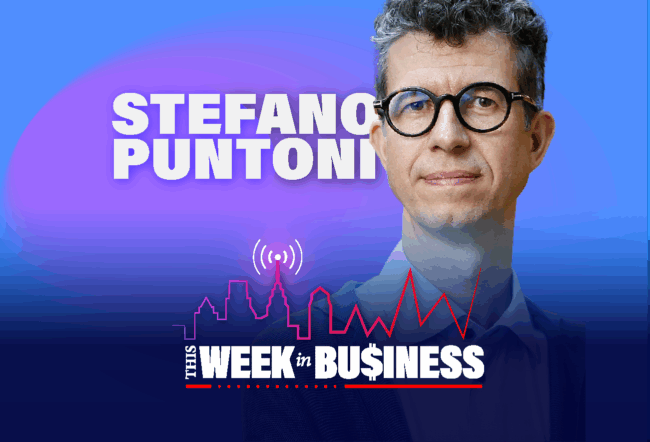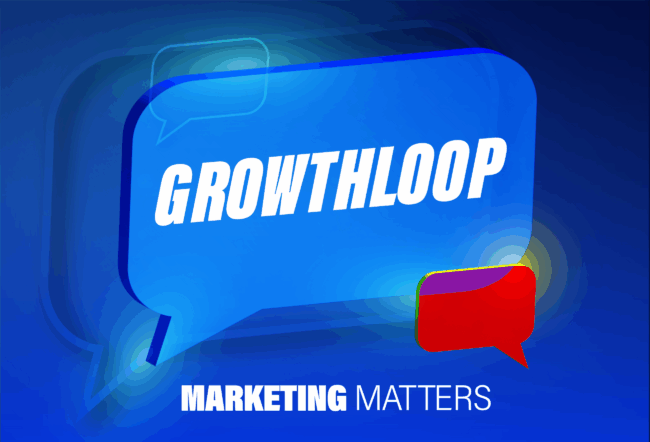Artificial intelligence draws out four kinds of people, said tech entrepreneur and venture capitalist Reid Hoffman. He calls them doomers, gloomers, zoomers, and bloomers.
Doomers think AI is an existential threat that should be stopped. Gloomers believe it’s an inevitable march toward job loss and human displacement. Zoomers are excited and want to hit the gas pedal, full speed ahead. And bloomers are cautiously optimistic, driving forward while tapping the brakes.
Hoffman puts himself in the bloomer category, which may be a surprise to some, given his work co-founding companies such as LinkedIn and Inflection AI. He launched Manas AI, which will speed the development of cancer drugs, on January 27 — the same day he visited Wharton to talk about his new book, Superagency: What Could Possibly Go Right With Our AI Future, and teach in Wharton Executive Education’s program titled, “Leading an AI-Powered Future.”
Wharton Dean Erika H. James hosted Hoffman as a guest for this year’s Tarnopol Dean’s Lecture Series. He spoke to a packed room in Huntsman Hall, and thousands more joined the live webcast on LinkedIn to hear his expert views on AI.
Hoffman said being a bloomer doesn’t mean slowing to a crawl. There’s still a need to stay ahead of the competition.
“Those industries, those countries that embrace the cognitive industrial revolution will have a similar kind of benefit to those industries and countries that embraced the industrial revolution, and that’s very important for our children and grandchildren,” he said. “Bloomers [say,] let’s understand risk and navigate it intelligently, but still try to get to that much better future.”
“The transformation is going to be at a faster speed than anything else in history.”— Reid Hoffman
Superagency, which was co-authored with tech writer Greg Beato, is an optimistic embrace of artificial intelligence. Hoffman believes that when AI is deployed correctly, it has the power to change society for the better — much like the printing press, the gasoline engine, computers, the internet, and all the previous inventions that catapulted humanity forward.
“I think what particularly freaks people out about AI [is that] it’s an agent,” he said. “The transformation is going to be at a faster speed than anything else in history. And we’re not living in a time when people are particularly trusting of any institutions.”
Hoffman thinks the lack of trust in AI comes from a worry over the loss of agency, but that doesn’t have to happen. He encouraged people to play around with the technology — especially the easy-to-use audio prompts — to discover how it can give them “superagency” at work, at home, and in their communities.
“What these technologies do is give us superpowers,” Hoffman said. “We collectively, both as individuals and as groups, get superagencies.”
The Promise and Pitfalls of AI
James asked Hoffman about universal access to AI, which is a major hurdle to closing the inequality gap. Hoffman acknowledged the importance, pointing out that there are still parts of the globe where people don’t have internet or cellphone access. He suggested thinking of AI as a similar service that will spread in a similar fashion.
“I think broad access, in one sense, will very naturally happen, which is very good. The same smartphone that Bill Gates has is the same smartphone that the Uber driver has,” he said. “It doesn’t mean there won’t be unevenness.”
“How do we navigate this disruption with more grace than we normally do?”— Reid Hoffman
Hoffman is a partner in venture capital firm Greylock and has worked with executives across industries. He said the problems with AI, including hallucinations, privacy, safety, ethics, and energy usage, are top concerns for business leaders and tech developers who are trying to mitigate them. They also want to prevent AI from being used by rogue states, terrorists, and other bad actors, he added.
“That’s the primary area I think all of the industry folks I work with are concerned about,” he said. “The other thing is we, as humans, when society is getting disrupted, tend to respond badly. How do we navigate this disruption with more grace than we normally do?”
Getting Ready for the Future
James asked how Wharton and other educational institutions can help prepare students for an AI-powered future. Hoffman noted that the school is already ahead of other institutions in incorporating AI into the curriculum. He also offered a positive message to students who will graduate at the same time that companies are trying to integrate AI.
“One of the entrepreneurial lessons is, how do you convert challenges into opportunities? For young people, you will have much more direct participation in growing up with these agents than the workforce that you will be entering. Make that one of your competitive superpowers,” he said.
Hoffman said he wants everyone — doomers, gloomers, zoomers, and bloomers — to jump into the AI game because different perspectives will lead to better outcomes. He ended his hour-long chat by repeating a sports metaphor that he shared last year with some friends who work in European government: “If you look at AI as a World Cup match between U.S. and China, what Europe is trying to do is play the referee. There’s a couple of problems. One, the referee never wins. No one really likes the referee. So, get on the field.”



